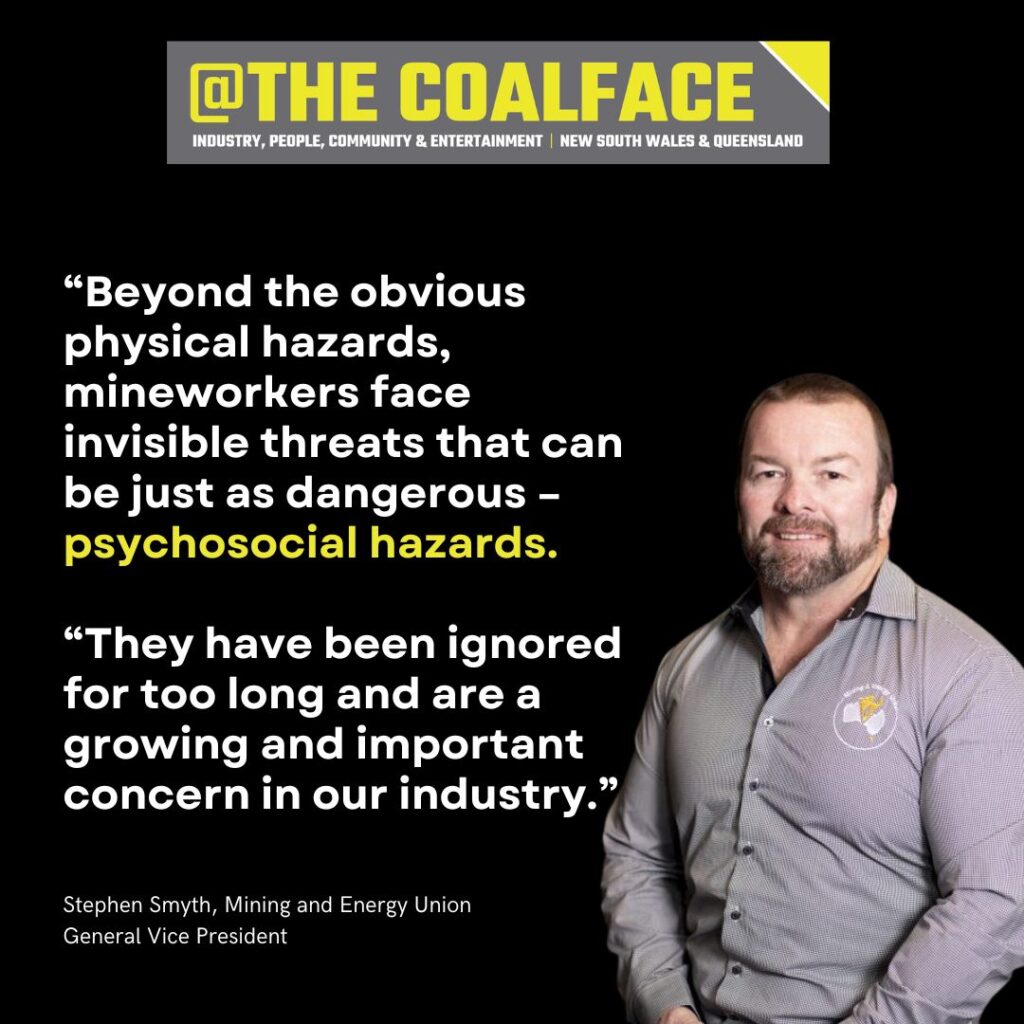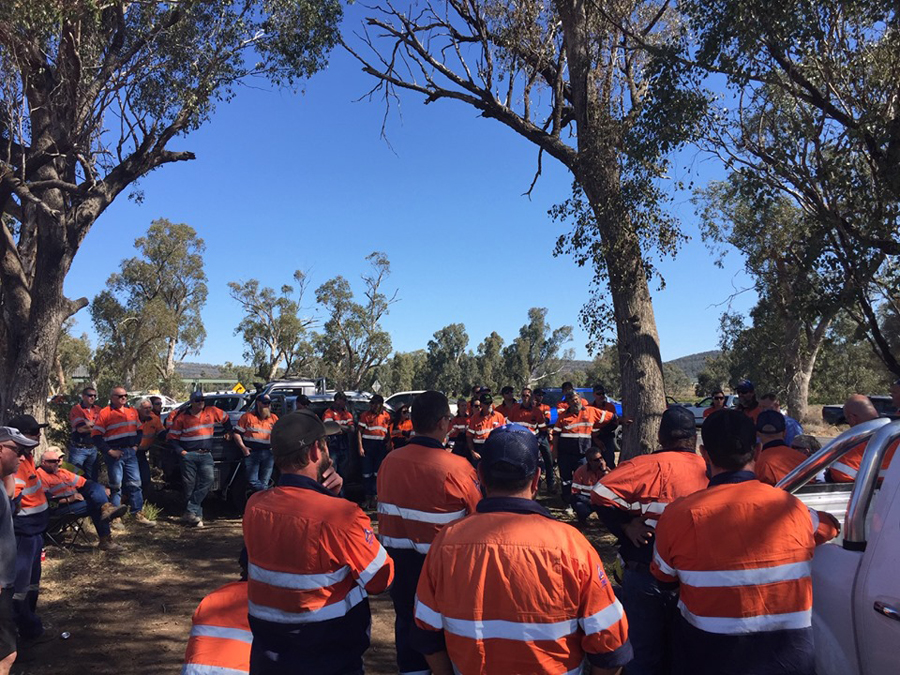October 23, 2025
Originally published in @The Coalface
The past month has been a sad time for mining memorials as we commemorated the fiftieth anniversary of the disaster at Kianga mine and remembered the thirteen miners who lost their lives on that awful day. We also pause to remember the many other disasters including at the Bellbird mine in NSW in 1923.
Tragedies like these remind us that coal mining is dangerous, and we must always renew our commitment to safety.
But beyond the obvious physical hazards, mineworkers face invisible threats that can be just as dangerous – psychosocial hazards. These are work-related factors that can severely impact a worker’s mental and physical health. They have been ignored for too long and are a growing and important concern in our industry.
Psychosocial hazards arise from the way work is performed and managed, as well as from the social and environmental conditions of the workplace. In our industries exposure to these hazards can be common, and when they are frequent, prolonged, or severe, the risk of harm increases significantly.
Common psychosocial hazards include bullying, exposure to violent or traumatic events, sexual harassment, and unachievable workloads. These issues are not just “part of the job” – they are serious risks that can lead to long-term harm if left unaddressed.
In high-risk sectors like ours, these hazards can trigger intense stress responses. They can cause anxiety, depression, post-traumatic stress disorder, sleep disorders, and even suicidal thoughts. According to Safe Work Australia, 9% of all serious workers’ compensation claims are for mental health conditions – and this number is growing alongside the awareness of psychosocial hazards and their effects.
The negative effects of psychosocial hazards are not confined just to mental health, however. Increased blood pressure and risk of heart attack, gastrointestinal problems, and weakened immunity are just some of the health issues linked to psychosocial stress. In some cases, workplace aggression or harassment can even cause immediate physical harm, compounding the danger.
The Mining and Energy Union is committed to recognising and eliminating psychosocial hazards across our industries. We fight for safer, fairer, and more respectful workplaces, and we know that unionised sites are better equipped to tackle these challenges.
In workplaces with strong union representation, workers are empowered to speak up about unsafe workloads, bullying, and harassment. They have trusted representatives on site who can help resolve issues before they get out of control.
Workers must have safe and independent avenues to report psychosocial hazards. Unfortunately, many tell us they don’t trust employer-run complaints processes, fearing their complaint may not be taken seriously or worse – they may become a target for speaking up. That’s why we support Resources Health and Safety Queensland’s independent reporting system for safety hazards, including psychosocial, which you can access online or over the phone (1300 581 077) and the independent NSW Resources Regulator’s independent reporting system which you can also access online or over the phone (1300 814 609).
The MEU also works closely with regulators and state governments to lift industry standards. From influencing the way we perform work to improving legislation on sexual harassment, we play a key role in shaping safety codes and practices that reflect the realities of our industries.
Under Safe Work Australia’s new model Work Health and Safety laws, employers now have a positive duty to proactively manage psychosocial risks. This means they must take reasonable steps to prevent harm – not just respond after it occurs. Likewise, the 2022 update the national Sex Discrimination Act requires employers to take meaningful action to prevent sexual harassment and other unlawful conduct.
If you’re concerned about psychosocial hazards at your site, treat it like any other safety hazard. Tell your supervisor. If the issue isn’t being resolved, contact your MEU delegate, Site Safety and Health Representative, MEU District Representative, or your state’s mining regulator.
If a crime like physical or sexual assault has occurred, call 000.
If you’ve suffered a psychosocial injury, treat it like any other injury. Document the events, see a doctor, and complete the necessary workers’ compensation forms and take good care of yourself. Your union is here to support you every step of the way.
Psychosocial hazards are an emerging issue, but with awareness, action, and solidarity, we can make our workplaces safer for everyone.
Stephen Smyth
General Vice President, Mining & Energy Union


